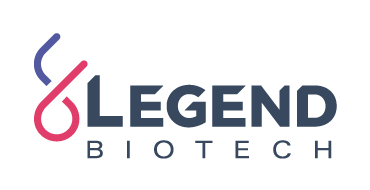
Current openings at Legend Biotech EU
Legend Biotech is a global biotechnology company dedicated to treating, and one day curing, life-threatening diseases. Headquartered in Somerset, New Jersey, we are developing advanced cell therapies across a diverse array of technology platforms, including autologous and allogenic chimeric antigen receptor T-cell, T-cell receptor (TCR-T), and natural killer (NK) cell-based immunotherapy. From our three R&D sites around the world, we apply these innovative technologies to pursue the discovery of safe, efficacious and cutting-edge therapeutics for patients worldwide.
Legend Biotech entered into a global collaboration agreement with Janssen, one of the pharmaceutical companies of Johnson & Johnson, to jointly develop and commercialize ciltacabtagene autolecuel (cilta-cel). Our strategic partnership is designed to combine the strengths and expertise of both companies to advance the promise of an immunotherapy in the treatment of multiple myeloma.